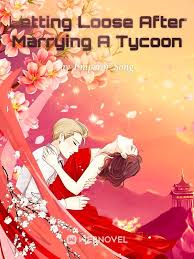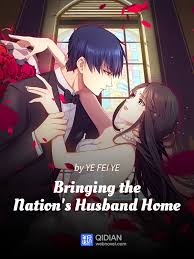The Story in 3 Sentences
Xiong Zhi flees a forced marriage only to witness the death of Linfeng, her devoted aide and secret love, leaving her consumed by grief and regret as she takes her last breath.
She awakens in her sixteen-year-old body, granted a second chance to rewrite fate, transforming from a passive, obedient girl into a fiercely determined woman armed with foresight and resolve.
Vowing to protect Linfeng and reclaim their lost time, she navigates family schemes, societal expectations, and her own hardened heart to fulfill a promise made beyond death.
Why It Stands Out
1. Rebirth with Emotional Precision
Unlike typical revenge-driven reincarnation tales, “To Love You Again” centers its rebirth arc on emotional restitution rather than mere power fantasy. Xiong Zhi’s transformation isn’t about domination but devotion—her strength stems from love, not vengeance alone. This nuanced pivot makes her journey feel intimate and human, not just strategic.
2. Quiet Subversion of Josei Tropes
While labeled urban romance and josei, the novel sidesteps melodrama by grounding its protagonist’s agency in realism. Xiong Zhi doesn’t rely on male saviors or sudden wealth; she uses memory, social intelligence, and emotional clarity to dismantle past tragedies. Her boldness isn’t performative—it’s protective, especially toward Linfeng.
3. Love as Active Redemption
The core promise—“I will protect you and love you”—frames romance as an act of repair. Rather than waiting for fate to align, Xiong Zhi actively engineers safety, trust, and intimacy. This reframing turns the “second chance” trope into a meditation on responsibility: love isn’t just feeling, it’s doing.
Characters That Leave a Mark
There’s Linfeng – the loyal aide whose quiet strength and ultimate sacrifice become the emotional axis of the entire narrative; his death isn’t just a plot device but the wound that reshapes Xiong Zhi’s soul.
You’ll meet Lu Jin, who emerges as a complex figure straddling ally and obstacle, his presence testing Xiong Zhi’s resolve and revealing layers of loyalty, ambition, and hidden vulnerability within the social web she must navigate.
And Han Yi-gyeol? They’re the one who embodies tragic loyalty, a supporting character whose fate underscores the brutal cost of blind devotion in a world where love and duty often collide.
The Flaws Fans Debate
Some readers note the pacing drags in mid-arcs, with repetitive internal monologues that echo past regrets without advancing the plot.
Critics point to underdeveloped antagonists, whose motivations often feel generic compared to the rich interiority of the leads.
A recurring complaint is the imbalance in focus—Linfeng’s perspective remains largely absent, making his emotional journey feel inferred rather than shown, which weakens the reciprocity of the central romance.
Must-Experience Arcs
Ch. 1–30: The Death That Rewinds Time – Xiong Zhi’s escape, Linfeng’s sacrifice, and her rebirth set a haunting, emotionally raw foundation that redefines what a prologue can achieve.
Ch. 200–250: The Mask of the Obedient Daughter – Xiong Zhi navigates family politics while secretly shielding Linfeng, revealing her tactical brilliance and the psychological toll of pretending to be who she no longer is.
Ch. 800–872: The Promise Kept – In the final stretch, past debts are settled, truths surface, and Xiong Zhi’s vow culminates not in grand spectacle but in quiet, earned intimacy that honors the novel’s emotional core.
Killer Quotes
“Never again to be weak… Never again wasted our precious time… I’ll promise… In the next lifetime… I will protect you… and.. love you…”
“In the next lifetime, I will be strong and hold every moment of us. I will express all my love to you. To never regret again.”
Cultural Impact
Fans frequently cite the novel as a “healing read” for those processing lost love or regret, turning Xiong Zhi’s vow into a personal mantra.
The phrase “I’ll love you again” became a trending tag on Webnovel comment sections, often used by readers sharing their own second-chance stories.
With over 7.8 million views and consistent daily updates, it built a loyal community that treats each chapter drop like a weekly ritual, praising its emotional consistency over sensational twists.
Final Verdict
Start Here If You Want:
A romance rooted in emotional accountability rather than fantasy escapism.
A female lead who reclaims power through love, not just survival.
A story where the second chance isn’t about changing the world—but saving one person, again and again.
Study If You Love:
Narratives that explore how trauma reshapes agency and intimacy across timelines.
Josei fiction that prioritizes psychological realism over trope-driven drama.
Rebirth stories that treat memory as both weapon and balm, not just a cheat code.
Avoid If You Prefer:
Fast-paced action or external conflict as the primary driver of plot.
Equal narrative weight given to both romantic leads’ inner lives.
Stories where the past is neatly erased; here, regret lingers even in redemption.





